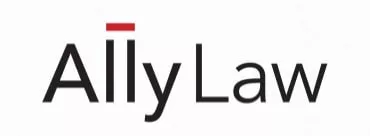Indonesia:
Indonesia Quarterly Regulatory Updates
To print this article, all you need is to be registered or login on Mondaq.com.
We provide herein our executive summary of 20 newly enacted
regulations from various sectors in Indonesia, which have been
enforced since 1 October – 31 January 2022.
| General Corporate Sector |
| No |
Regulation |
Summary |
| 1. |
Minister of Law and Human Rights Regulation of the No. 38 of
2021 on Procedures on Prevention and Prohibition
("MoLHR Regulation 38/2021")
Enforcement Date: 31 December 2021
|
- MoLHR Regulation 38/2021 provides several immigration-related
provisions, which address 1) the enforcement of temporary
suspensions of individuals in Indonesia's territory
("Prevention") and 2) the prohibition
for foreign citizens from entering Indonesia's territory
("Prohibition").
- MoLHR Regulation 38/2021 enforces preventive policies for both
Indonesian citizens and foreign nationals, subject to the parties
concerned, based on a number of reasons, including 1) Supervision
of Immigration Officials and Decrees on Administrative Measures
related to Immigration; 2) Decrees of the Minister of Finance and
the Attorney General, in relation to their respective assignments;
3) Requests of the Chief of the Indonesian Police Force or the Head
of the National Narcotics Board of the Republic of Indonesia; 4)
Orders of the Head Corruption Eradication Commission; and/or 5)
Decisions or orders or requests of the authorized ministries or
agencies.
- The regulation is imposed by the Minister of Law and Human
Rights, subject to requests of the following parties: 1)
Representatives of the Republic of Indonesia, through the Minister
of Foreign Affairs; 2) Other countries, to prevent the foreign
nationals from avoiding the legal proceeding in their countries of
origin; and/or 3) the International Court of Justice as a result of
the parties' crimes against humanity or organized cross-border
crimes.
|
| 2. |
Constitutional Court Decision No. 23/PUU-XIX/2021 on Judicial
Review of Law No. 37 of 2004 on Bankruptcy and Suspension of Debt
Payment Obligation ("CC Decision 23/2021")
Enforcement Date: 1 December 2021
|
- PT Sarana Yeoman Sembada ("Petitioner") appealed to
the Constitutional Court ("MK") stating that Article 235
(1), Article 293 (1), and Article 295 (1) of Law Number 37 of 2004
on Bankruptcy and Postponement of Debt Payment Obligation
("Law 37/2004") were unconstitutional and should not be
legally binding. The Petitioner claimed that these provisions were
not in line with Article 28D (1) of the 1945 Constitution of the
Republic of Indonesia ("UUD 1945") and, as a result,
causing injustice and legal uncertainty.
- MK considered the petition for Suspension of Debt Payment
Obligation ("PKPU") submitted by the creditor and the
reconciliation proposed by the debtor that was later rejected by
the creditor potentially create conflict of interest, as well as
possible errors with regard to the application of the law by the
Judge. Thus, a legal action must be taken. MK concluded that the
appropriate legal remedy is an appeal without the right to file a
review.
- The Court then decided that Article 235 (1) and Article 293 (1)
of Law 37/2004 contradict the 1945 Constitution if the
interpretation is not adjusted: "It is permissible to take
cassation against the PKPU decision submitted by the creditor and
the rejection of settlements of the debtor."
|
| 3. |
Constitutional Court Decision No. 91/PUU-XVIII/2020 on Formal
Judicial Review of Law No.11 of 2020 on Job Creation ("Job
Creation Law") ("CC Decision 91/2020")
Enforcement date: 25 November 2021
|
- Based on this decision, the Job Creation Law is deemed
conditionally unconstitutional. However, it will remain effective
for two-years of the grace period. The Constitutional Court has
also ordered the respective authority to revise the Job-Creation
Law and failure to do so will make the law permanently
unconstitutional.
- CC Decision 91/2020 also rules that all strategic and
widespread measures and policies under the Job Creation Law shall
be suspended. Moreover, no new implementing related-rules for the
Job Creation Law shall be issued. On the contrary, the Coordinating
Minister of Economic Affairs ("CMoEA") has issued a
statement that all existing provisions of the Job Creation Law
shall continue to be effective until the issuance of the
revisions.
|
| 4. |
Minister of State-Owned Enterprises ("MoSOE")
Regulation No. PER-14/MBU/10/2021 on the Second Amendment to MoSOE
Regulation No. PER-12/MBU/2012 on Supporting Bodies of the Board of
Commissioners/ Board of Supervisors of State-Owned Enterprises
("MoSOE Regulation 14/2021")
Enforcement Date: 29 October 2021
|
- MoSOE Regulation 14/2021 provides that secretaries of the Board
of Commissioners ("BoC") or Board of Supervisors
("BoS") of State-Owned Enterprises (Badan Usaha Milik
Negara or "BUMN") are given a post-service facility
(fasilitas purna jabatan) worth the maximum amount of 25% of their
honorariums. This provision would be effective starting the 2022
fiscal year.
- MoSOE Regulation 14/2021 also stipulates that the honorarium
for a member of the audit or other committees is a maximum of 20%
of the salary of the president director of the relevant company.
However, MoSOE may require certain BUMN companies to provide
honorarium for a member of the audit or other committees worth 25%
of the president director's salary of the relevant
company.
- Other committees must be formed by BUMN companies if ordered by
MoSOE through a Ministerial Decree that must contain the following
provisions: 1) the list of BUMN companies that are obliged to form
such committees; 2) duties of said committees; 3) number of
members; 4) terms of service; 5) membership requirements; and 6)
incomes and facilities.
|
Click here to access the full regulatory
updates.
The content of this article is intended to provide a general
guide to the subject matter. Specialist advice should be sought
about your specific circumstances.
POPULAR ARTICLES ON: Corporate/Commercial Law from Indonesia

